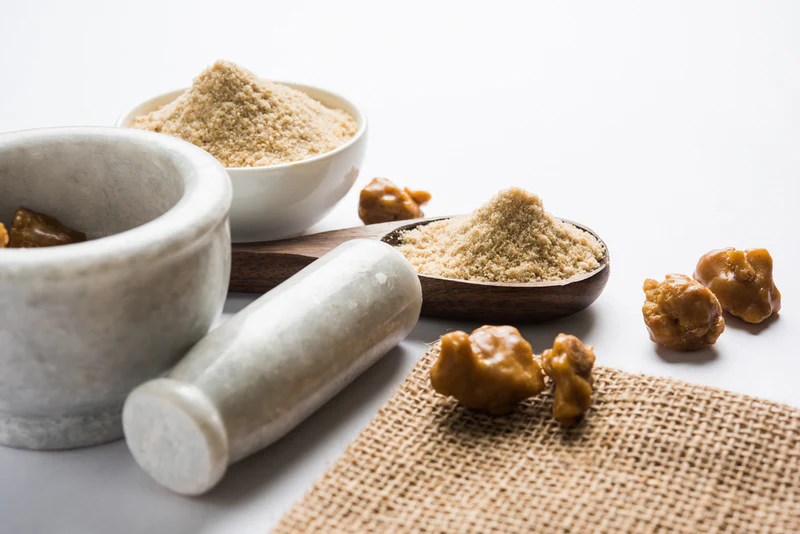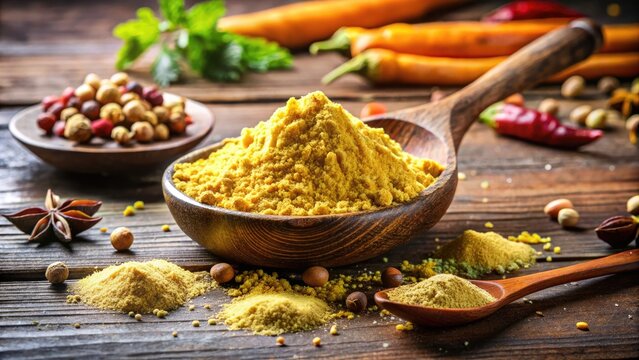Hing, also known as asafoetida, is often touted as a natural remedy for various health concerns, including weight loss. But is this claim a fact or a myth? This article explores the potential benefits of hing for weight management, focusing on its ability to improve digestion, reduce bloating, and enhance metabolism. Known for its strong aroma and medicinal properties, hing has been a staple in traditional remedies for centuries. By addressing issues like indigestion and toxin buildup, hing may support a healthier digestive system, which is crucial for maintaining a balanced weight. Discover whether this spice deserves a place in your weight-loss journey and how to incorporate it into your daily routine effectively.
Can hing really aid in weight loss, or is it just a myth?
Short Answer: Hing, also known as asafoetida, is traditionally believed to aid in digestion, which can indirectly support weight loss, but its direct impact on weight loss lacks strong scientific evidence.
1. Hing has been used in traditional medicine for its digestive benefits for centuries.
2. It is thought to reduce bloating and improve metabolism, helping in the overall digestive process.
3. While hing may aid digestion, its direct role in weight loss is not well-supported by scientific research.
4. Incorporating hing into a balanced diet can support overall health, which in turn may help with weight management.
Hing, or asafoetida, has a long history in traditional medicine, particularly in Ayurvedic and Unani systems. It is often used to treat digestive issues such as bloating, indigestion, and gas. The idea is that by improving digestion and reducing digestive discomfort, hing can indirectly help with weight management. Poor digestion can lead to inefficient nutrient absorption and slow metabolism, which are factors that can contribute to weight gain. However, it’s important to note that while these digestive benefits are well-recognized, the direct impact of hing on weight loss has not been thoroughly studied in scientific literature. Therefore, hing should be considered as a complementary approach rather than a standalone solution for weight loss. Its true value may lie in its ability to support a healthy digestive system, which is crucial for overall well-being and weight management.
What are the key active compounds in hing that might contribute to weight loss?
Short Answer: The primary active compounds in hing are ferulic acid and volatile oils, which are believed to have digestive and anti-inflammatory properties.
1. Ferulic acid has antioxidant and anti-inflammatory effects.
2. Volatile oils in hing can stimulate digestive enzymes, improving digestion.
3. These properties may aid in better digestion and metabolism, potentially supporting weight management.
4. Enhanced digestion and metabolism could indirectly support weight management by improving nutrient absorption.
Hing contains several active compounds that are believed to contribute to its health benefits. Among these, ferulic acid stands out due to its potent antioxidant and anti-inflammatory properties. Antioxidants help protect the body from oxidative stress and inflammation, both of which can negatively impact metabolic processes. The volatile oils present in hing, including compounds such as asaresinotannol, free resin acids, and volatile essential oil, are known to stimulate the production of digestive enzymes. This stimulation can enhance the breakdown of food in the stomach and intestines, leading to more efficient nutrient absorption and a reduction in digestive discomfort. Improved digestion and metabolism can contribute to better overall health, and by extension, may assist in managing body weight. However, it’s important to recognize that while these compounds are beneficial, hing should be part of a broader strategy that includes a balanced diet and regular physical activity for effective weight management.
Are there any scientific studies or evidence supporting hing’s role in weight management?
Short Answer: There is limited scientific research specifically linking hing to weight management, but some studies suggest it may improve digestion and reduce inflammation, which are factors in weight control.
1. Most studies focus on hing’s digestive benefits rather than direct weight loss.
2. Research suggests hing can reduce digestive discomfort and bloating, which may support weight management.
3. Improved digestion may help with overall nutrient absorption and metabolism, indirectly supporting weight control.
4. Further research is needed to establish a direct connection between hing and weight loss.
Scientific studies on hing have primarily focused on its role in digestive health rather than direct weight loss. For example, research has demonstrated that hing can alleviate symptoms of irritable bowel syndrome (IBS) and other digestive disorders by reducing bloating and improving gut motility. These improvements in digestive health can create a more favorable environment for weight management. Additionally, hing’s anti-inflammatory properties may help mitigate chronic inflammation, which is linked to obesity and metabolic disorders. While these findings are promising, there is a lack of large-scale, controlled studies specifically investigating hing’s impact on weight loss. The existing evidence suggests that while hing can support overall digestive health, its direct effects on weight loss are still uncertain. More rigorous research is necessary to confirm these potential benefits and to understand the mechanisms through which hing might influence body weight.
Are there any potential side effects or risks associated with consuming hing for weight loss?
Short Answer: While hing is generally safe when used in moderation, excessive consumption can lead to digestive discomfort and allergic reactions in some individuals.
1. Overuse of hing can cause stomach upset, diarrhea, or gas.
2. Some people may be allergic to hing, experiencing rashes or respiratory issues.
3. Pregnant and breastfeeding women should consult a doctor before using hing.
4. Always use hing in recommended amounts to avoid adverse effects.
Hing is considered safe for most people when consumed in moderate amounts typically used in cooking. However, excessive intake of hing can lead to digestive issues such as stomach upset, diarrhea, and gas. This is because hing is a strong spice with potent bioactive compounds that, in large quantities, can irritate the digestive tract. Additionally, some individuals may be allergic to hing, and symptoms of an allergic reaction can include skin rashes, itching, and respiratory difficulties. Pregnant and breastfeeding women should exercise caution and consult a healthcare provider before incorporating hing into their diet, as the safety of hing during pregnancy and lactation has not been well-studied. To minimize the risk of side effects, it is important to use hing in small amounts and as part of a balanced diet. As with any dietary supplement or spice, moderation is key to avoiding adverse effects and maximizing potential health benefits.
How should hing be incorporated into a daily diet for potential weight loss benefits?
Short Answer: Hing can be added to meals as a spice, used in tempering, or taken as a supplement to potentially support weight loss through improved digestion.
1. Add a pinch of hing to soups, stews, and curries for flavor and digestive benefits.
2. Use hing in tempering (tadka) for lentils and vegetables to enhance taste and digestion.
3. Hing can be taken as a supplement in capsule form if recommended by a healthcare provider.
4. Incorporate hing into a balanced diet along with regular exercise for best results.
To incorporate hing into your daily diet, you can start by using it as a spice in various dishes. A small pinch of hing can be added to soups, stews, curries, and sauces to enhance flavor and promote better digestion. In Indian cuisine, hing is often used in tempering (tadka) to flavor lentils and vegetable dishes. This method involves heating oil or ghee, adding a small amount of hing, and then pouring the mixture over the cooked dish. This not only imparts a unique flavor but also helps in digestion. For those who may not enjoy the taste of hing, it is available in capsule form as a dietary supplement. However, it is advisable to consult a healthcare provider before taking hing supplements, especially for individuals with underlying health conditions or those who are pregnant or breastfeeding. While hing can support digestive health, it should be part of a holistic approach to weight management that includes a balanced diet rich in fruits, vegetables, whole grains, and lean proteins, as well as regular physical activity.
Conclusion
Summary: Hing, or asafoetida, has been valued in traditional medicine for its digestive benefits, which may indirectly support weight loss. While direct scientific evidence linking hing to weight loss is limited, its role in improving digestion and metabolism can contribute to overall health and weight management. As with any supplement or dietary change, it’s important to use hing in moderation and consult with healthcare providers if needed.
1. Hing is known for its digestive and anti-inflammatory properties.
2. The key active compounds include ferulic acid and volatile oils.
3. Scientific evidence on hing’s direct effect on weight loss is limited.
4. Potential side effects include digestive discomfort and allergic reactions.
5. Incorporating hing into a balanced diet may support weight management.

